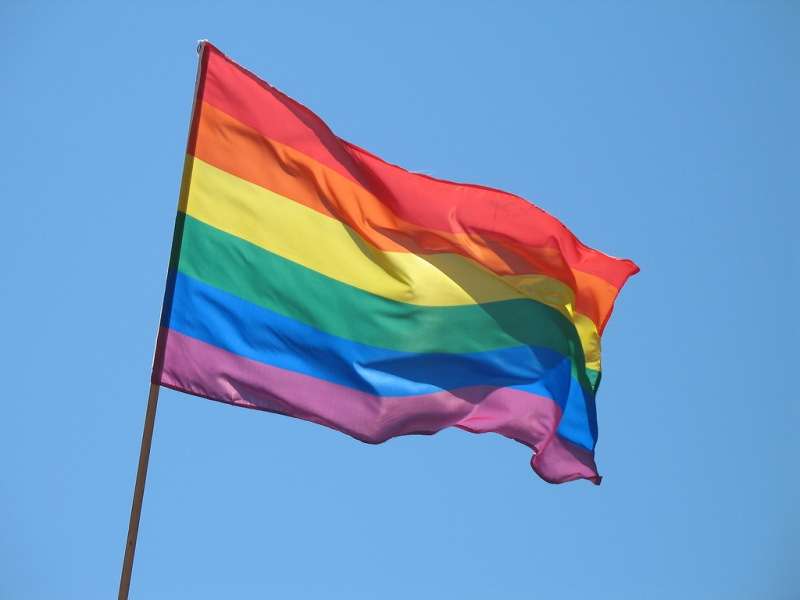Arkansas Legislators Meddle with Local Anti-Discrimination Laws
Ban on new protections nothing like a religious freedom act.


Arkansas Senate Bill 202 has no references to gays, lesbians or sexual orientation in it. Nevertheless, the law clearly targets the gay and transgender citizens of the state. It just passed the state legislature last week and Gov. Asa Hutchinson has said he'll allow it to pass into law, though without his signature.
This law (pdf) is nothing like those religious freedom restoration acts that some states have considered or passed. Those laws allow people to opt out of some laws and regulations (particularly antidiscrimination or public accommodation laws) on the basis of religious beliefs. SB 202 flips the idea on its head: The state law forbids municipal governments within Arkansas from passing any new form of antidiscrimination laws or adding new categories in private antidiscrimination laws unless said basis is already contained in state law. So, cities and counties within Arkansas would be banned from banning any sort of discrimination the state doesn't already ban. Arkansas does not ban discrimination on the basis of sexual orientation or gender identity. So that means that the two cities in the entire state, Eureka Springs and Little Rock, that have laws against anti-gay discrimination would lose the ability to enforce its law. Since the law excludes public employees, Fayetteville would keep its city laws that forbid anti-gay discrimination in public employment. Nobody else would be affected, but obviously, SB 202 would prevent other cities from following Eureka Springs' lead.
The law is cynically being peddled as an "intrastate commerce improvement act" whose purpose is to make sure that "businesses, organizations, and employers doing business in the state are subject to uniform nondiscrimination laws … ." Mind you, it doesn't forbid municipalities from passing any number of other business-related regulations that vary wildly from city to city—just discrimination laws. It also, absurdly, declares that this situation is an emergency, which means that once the bill passes into law, it will be immediately enforced. It all ends up feeling as though a business buddy of a state senator really, really wants to fire some gay employee in Eureka Springs or Little Rock but can't.
Several local civil rights groups are still hoping the governor will veto the bill. He has until today. If he does nothing, the law takes effect, though obviously the state will immediately be sued over it. The American Civil Liberties Union, Gay & Lesbian Advocates and Defenders, Lambda Legal, and the National Center for Lesbian Rights issued a statement:
[M]ake no mistake – this bill is not about alleviating drags on commerce within Arkansas, and no one truly thinks it is. A bill with that goal might, for example, reduce the variation in municipal tax rates and other local rules that actually can bedevil businesses. But it's not burdensome for businesses to treat gay and transgender people fairly. In fact, dozens of research studies have found again and again that ending discrimination, and supporting diversity, is good for business.
So the real purpose isn't helping businesses, it's targeting LGBT people. This is obvious from the sponsors' consistent and constant claims that this is needed because of an ordinance in Fayetteville that provided protections for LGBT people. And as in Arizona last year, the speed of the bill has meant the critiques are now coming in a wave after the legislature whizzed the bill through.
Their statement also invokes the 1996 Supreme Court case about a somewhat similar law in Colorado. In Romer v. Evans, the court struck down Colorado's Amendment 2, in a 6-3 ruling. That amendment to the state's constitution forbid the state or any municipalities within the state from passing any sort of antidiscrimination laws or ordinances protecting gays or lesbians. That amendment, though, specifically targeted gay people. Arkansas has written its law in such a vague fashion obviously to try to avoid a repeat decision, but its intent is pretty obvious.
I'm on the record as being generally opposed to the passage of new antidiscrimination regulations and don't believe the extent of discrimination that continues today necessitates or justifies more laws. Nevertheless, the state telling its municipalities what kinds of laws they may or may not pass is one of those slippery slope situations that can (and does) go to very bad places.


Show Comments (192)